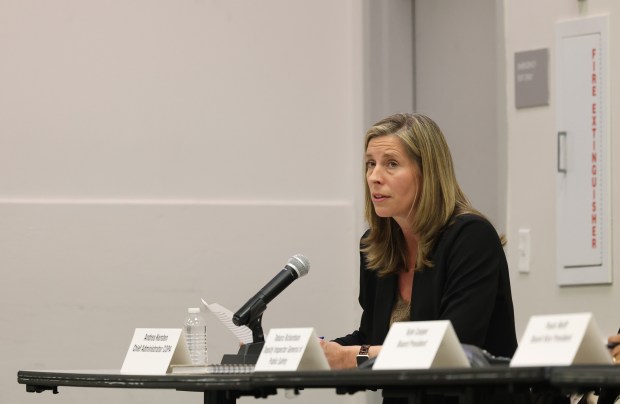When videos were made public in April of the police shooting of a Chicagoan named Dexter Reed after a traffic stop, the head of the agency tasked with investigating police shootings publicly questioned whether the cops were lying about the justification for pulling Reed over.
At the time, police Superintendent Larry Snelling criticized Andrea Kersten, chief administrator of the Civilian Office of Police Accountability (COPA), for undermining an investigation of the incident that had barely begun. This page agreed then with his view and questioned why someone charged with running such a probe would imply she’d already decided officers were culpable at such an early stage.
More than three months later, we now see in more concrete terms the consequences of what Kersten did. She set off a string of unintended — yet easily predictable — consequences when she released a letter accusing police of lying when the reason purportedly given for stopping Reed’s car on that fateful day in March in Humboldt Park was that he wasn’t wearing a seat belt. The windows of his car were darkly tinted, so it was natural to question how the officers even could see Reed in the car and whether (or not) he was strapped in, as the law requires.
But hold the phone.
In a recent court filing seeking to dismiss portions of a wrongful death lawsuit filed by Reed’s family, the city now contends that the cops stopped Reed not for any seat belt violation but precisely because of those windows. State law bars car windows in front and to the side of the driver from being opaquely tinted. In response, an aide to Kersten told the Chicago Sun-Times that the agency is sticking to its April account.
The difference in the two rationales is meaningful. A stop for a seat belt violation will strike many as clearly pretextual. But a stop for windows so dark that no one can see into a car is more defensible in a city awash in illegal guns. Indeed, Reed was illegally carrying a gun in the car, which he then used to shoot at police once the confrontation got heated.
We don’t pretend to know which account is true. But that’s precisely the point here when it comes to COPA’s behavior more than three months ago. These contradictions are for courts of law to sort out, using rules of evidence and demanding that witnesses tell the truth under oath and penalty of perjury. But COPA opted instead to make its arguments in the court of public opinion, and we’re beginning to suffer the fallout.
COPA lodged its initial allegations against the cops who stopped Reed, according to Snelling, before any of the five officers had been questioned. We wrote at the time that Reed’s family would surely cite COPA’s accusations in any lawsuit they filed against the city. Sure enough, they did — and wasted no time doing so. The suit was filed roughly two weeks after COPA’s letter was made public and a little over a week after our editorial.
Naturally, the family now is incensed that the city is denying COPA’s narrative and effectively is accusing Mayor Brandon Johnson of feigning what he said in April was the heartbreak he felt on their behalf when he first saw the footage of the incident.
That’s unfair. The mayor can express anguish at the tragedies that happen all too often on the streets of Chicago and at the same time fulfill his duty to represent taxpayers. It’s not surprising that city lawyers are pursuing an assertive defense, since no one disputes that Reed shot first at cops before they returned fire.
There’s room for debate about whether the stop itself was done appropriately and the proportionality of the police response after Reed shot. And those details are likely to be hashed out in pretrial depositions and potentially in a courtroom, and that’s as it should be. It won’t be surprising if Kersten or other members of COPA are among those deposed under oath by lawyers, given that the family has pinned a fair chunk of its case on COPA’s preliminary findings.
Such a lamentable outcome could have been prevented in the first place if the agency hadn’t gotten itself so far out over its skis. The release of the videos, coupled with the finding that Reed shot first along with the number of shots fired back at him, would have sufficed to meet the initial standard of transparency the public now expects in police shootings.
Any conclusions on responsibility should have waited for a thorough investigation, whether by COPA, the courts or both. That’s just common sense — and normal procedure for administrative bodies tasked with after-the-fact investigations.
In the meantime, we’re heartened to see that Snelling has been true to his word, which he gave early this year, well before the Reed shooting, that he was de-emphasizing traffic stops in high-crime neighborhoods as a primary tool of policing. CPD traffic stops reportedly are down more than 40% as of mid-July from the same period last year.
In the interest of public safety and justice, it’s critical to restore and bolster public confidence in Chicago police, undermined by past instances of police misconduct that were kept hidden for long stretches of time. Transparency and accountability are crucial parts of that effort.
So far, the vexing Dexter Reed case has served mainly as an example of how not to achieve those goals.
Submit a letter, of no more than 400 words, to the editor here or email letters@chicagotribune.com.



